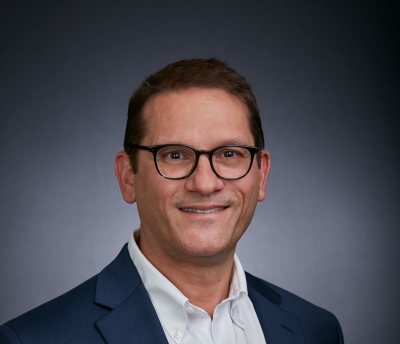NORMAN, OKLA. – Timothy R. Filley, an internationally recognized biogeochemist who studies how the Earth responds to environmental factors, has been named the inaugural director of the University of Oklahoma Institute for Resilient Environmental and Energy Systems. The appointment is effective Aug. 1. Filley will also hold joint faculty appointments as a professor in the College of Atmospheric and Geographic Sciences and the School of Geosciences in the Mewborne College of Earth and Energy. The new institute represents one of several Centers of Excellence supporting pillar 5 of the Lead On, University strategic plan that directs OU research efforts toward solving significant real-world challenges.
“Tim Filley’s record of excellence in building transdisciplinary teams and integrating university-led research with other community and stakeholder needs to solve real-world challenges makes him ideal to guide this new institute,” said Tomás Díaz de la Rubia, vice president for research and partnerships. “IREES is perfectly aligned with OU’s core purpose, ‘We Change Lives.’ Through this institute, researchers will work hand-in-hand with Oklahoma and global communities and public- and private-sector partners to solve environmental challenges, create jobs and create a cleaner, safer, more sustainable and prosperous world.”
In support of the OU strategic plan, faculty from across the university developed “strategic research verticals” that document plans for how OU can address the global grand challenges of aerospace, defense and global security; the future of health; society and community transformation; and energy and environmental sustainability. Filley says the IREES will integrate and expand on OU’s expertise in weather, water, environment, energy technology, climate change, infrastructure, policy, business, entrepreneurship and community engagement to “create a research ecosystem to explore the challenges and solutions necessary to achieve sustainable and equitable socioenvironmental systems in the context of global mega trends.”
“We are delighted to welcome Tim as the inaugural director of the University of Oklahoma Institute for Resilient Environmental and Energy Systems,” said Berrien Moore, dean of the College of Atmospheric and Geographic Sciences. “He has had a distinguished academic and administrative career at Purdue University and his scholarship as an isotope biogeochemist is a great fit with both the Department of Geography and Environmental Sustainability and the School of Geosciences. Furthermore, his appointment is aligned perfectly with OU’s strategic plan. For all of these reasons and more, we are delighted to have him join the OU Family.”
“Tim is a welcomed addition to our research efforts,” said Mike Stice, dean of the Mewborne College of Earth and Energy. “He has an outstanding reputation in both basic and applied sciences and a proven track record of competing for and winning grants in energy and environmental sustainability. We look forward to his many contributions as we embrace our role in critical zone science.”
Filley’s research program explores the biogeochemical processes that transform organic matter in land and water ecosystems. An overarching goal of his work is to demonstrate that an improved understanding of soil organic matter dynamics can lead to better understanding of society’s vulnerability to climate and land use change, and to the potential risks from emerging pollutants. Through isotope geochemistry, molecular biology and analytical chemistry, he studies the complex factors that drive organic geochemical transformations in the environment within a critical zone perspective, involving the complex interactions involving rock, soil, water, air and living organisms on Earth.
As IREES director, Filley will bridge disciplines and build collaborations. “Success of the institute will be about people. It will be about engaging the OU community – the faculty and students, our alumni and stakeholders, and important industry partners – with an exciting vision, strong incentives to encourage participation and flexibility to build, learn and grow together as we take this journey toward improving lives and livelihoods at home and around the world,” he said.
Additionally, he says the institute will be built on the tenant of resilience and will aim to support research efforts in observing and predicting Earth systems, transforming energy and infrastructure, and advancing community resilience and environmental justice.
“IREES will have resilience-thinking at the forefront of what we do in that we will promote solutions to best manage the complex interactions between people and ecological systems such that they can adapt to a wide range of challenges, disturbances and uncertainty,” he added.
Filley comes to OU from Purdue University, where he served as the director of Purdue’s Center for the Environment, which connects more than 200 faculty and student affiliate members from across university departments and disciplines and works to promote proactive, interdisciplinary research, learning and engagement addressing important regional and global environmental challenges. Filley also co-directed the Purdue Stable Isotope Instrumentation facility within the Department of Earth, Atmospheric and Planetary Sciences. From 2012-2016, he served as the director of the U.S.-China Eco-partnership for Environmental Sustainability, a partnership with the University of Tennessee, Oak Ridge National Laboratory, three Chinese Academy of Sciences Institutes and other key universities in China.
Additionally, Filley is the U.S. director and lead principal investigator of the Arequipa Nexus Institute for Sustainable Food, Energy, Water and the Environment, a technical and research alliance program between Purdue University and the Universidad Nacional de San Agustín in the Arequipa region of Peru. Similar to OU’s research collaboration with UNSA, the alliance is designed to understand and address challenges to the region’s food, energy and water production and delivery systems. At OU, Filley will continue affiliation with the project, referred to as “The Nexus,” as the co-director and co-principal investigator.


